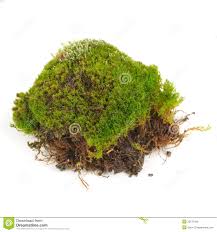
记忆方法
1. 靠拢铺。把一些东西拢在一起,使其靠拢铺在一起——团,块;
2. 磕啷步。想象用力走路的声音——沉重的脚步声。
3. c + lump => 很像双臂抱着一块一块、一团一团的东西,形成丛、簇。
4. club => clump.
2. 磕啷步。想象用力走路的声音——沉重的脚步声。
3. c + lump => 很像双臂抱着一块一块、一团一团的东西,形成丛、簇。
4. club => clump.
中文词源
clump 丛,堆
词源同club,大块,木棍。
英语词源
- clump (n.)
- 1580s, "lump; cluster of trees," from Middle English clompe "a lump" (c. 1300), from Dutch klomp "lump, mass," or Middle Low German klumpe "clog, wooden shoe." Old English had clympre "lump, mass of metal."
- clump (v.2)
- "walk heavily," 1660s, imitative. Related: Clumped; clumping.
- clump (v.1)
- "to heap or gather in clumps" (transitive), 1824, from clump (n.). Related: Clumped; clumping. Intransitive sense "to form a clump or clumps" is recorded from 1896.
权威例句
- 1. The spade sank into a clump of overgrown bushes.
- 铲子插入了一丛长势旺盛的灌木丛。
- 2. Brown rice takes longer to cook but it doesn't clump together as easily as white rice.
- 糙米不容易熟,但不会像精米那样容易粘在一起。
- 3. That clump down near the bottom.
- 靠坑底那簇.
- 4. Exasperated, he leaped the stream, and strode towards beech clump.
- 他满腔恼怒, 跳过小河, 大踏步向毛榉林子走去.
- 5. A stream meandered gently through a clump of trees.
- 一条小溪从树丛中蜿蜒穿过.
